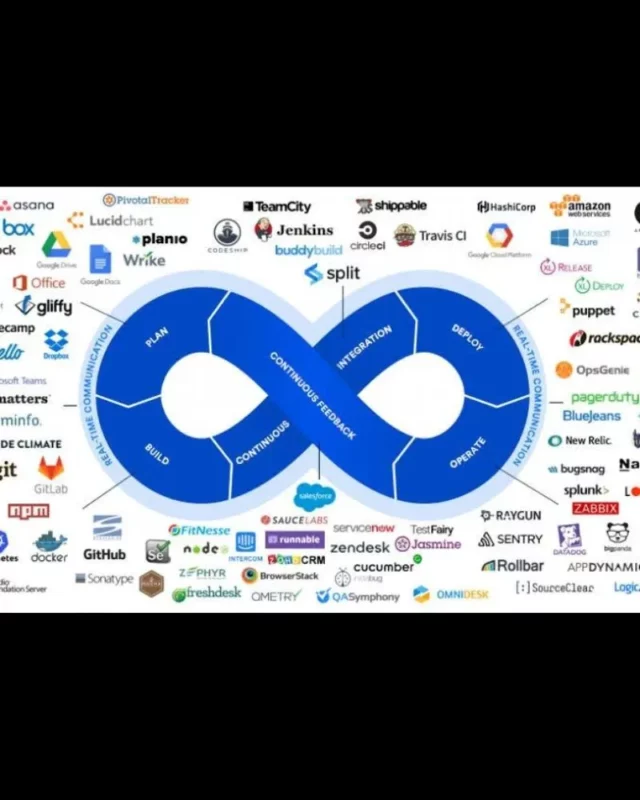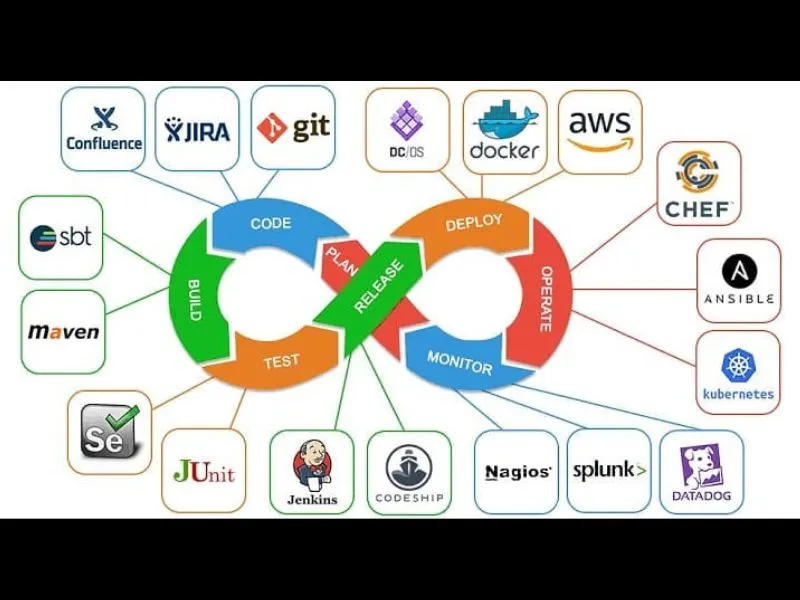In the modern digital environment, characterized by speed, flexibility, and innovation as competitive advantages, business entities are always seeking ways to gain a competitive edge. One such approach that has become a real game-changer is DevOps. DevOps, a combination of development and operations practices that promote collaboration, automation, and continuous delivery to facilitate software development and deployment procedures, has transformed the way organizations operate. Originally adopted by big techs, DevOps has now become a necessity for all organizations looking to gain a competitive edge in their respective markets. As businesses strive to adopt DevOps principles and practices, some may opt for DevOps outsourcing services to accelerate their transformation journey and leverage external expertise in implementing DevOps strategies tailored to their specific needs. Outsourcing DevOps services can provide access to specialized skills, accelerate implementation timelines, and ensure a smooth transition to DevOps practices while allowing internal teams to focus on core business objectives. By embracing DevOps outsourcing, businesses can effectively harness the power of DevOps to drive innovation, enhance agility, and maintain a competitive edge in today’s rapidly evolving digital landscape.
Unveiling the DevOps Advantage
DevOps goes beyond the mere speed of software deployment; it embodies a cultural change toward cooperation and productivity between development teams and operations crews. DevOps does so by breaking down organizational silos and automating repetitive tasks to enable organizations to produce good quality software in a timely reliable manner. Let’s delve into some compelling facts and statistics that underscore the advantages of DevOps.
- Accelerated Time-to-Market: According to Puppet Labs, high-performing DevOps organizations deploy code 46 times more often than low-performing ones. This rapid deployment cycle allows organizations to quickly react to market needs, which is an advantage over competitors.
- Improved Quality and Reliability: As revealed in the State of DevOps Report by DORA, high-performing DevOps teams have 7 times lower change failure rates and recover from failures a stunning 2604 times faster than low-performing ones. This shows how DevOps affects software quality and reliability, improving customer satisfaction levels.
- Enhanced Collaboration: As per IDC, organizations with strong DevOps practices have 21% higher employee productivity and as much as a fifty percent increase in their market capitalization growth over companies that do not practice it. This highlights the importance of teamwork and collaboration in DevOps implementation as a tool for business success.
- Increased Innovation: According to the 2021 State of DevOps Report, organizations with advanced practices in DevOps are twice as likely to outperform their commercial objectives. DevOps enables this by creating an environment where teams are encouraged to be innovative and experiment, thereby driving continuous improvement that leads them to deliver innovative solutions into the market.

image source: instagram
Strategies for Seamless DevOps Implementation
While the benefits of DevOps are evident, its successful implementation requires strategic planning and execution. Here are actionable strategies for business leaders to embrace DevOps and leverage it as a competitive advantage:
- Cultural Transformation: DevOps represents a cultural change to the way work is done in organizations, namely; collaboration, transparency, and continuous learning. This cultural transformation needs to be championed by the business leaders, creating an environment where teams are encouraged to try things out and learn from failure.
- Executive Buy-In and Support: DevOps initiatives require strong leadership support from the top. For an effective organizational change, business leaders need to support DevOps adoption actively, allocate resources, and lead by example.
- Cross-Functional Teams: Collapse organizational silos through the creation of cross-functional teams that include members from different departments such as development, operations QA among others. Promote teamwork and joint responsibility for objectives to ensure accountability, and create a culture of innovation.
- Automation and Tooling: Invest in automation tools and technologies to help simplify development, testing, deployment as well as monitoring processes. Automation cuts down manual overhead, speeds up delivery, and improves reliability.
- Continuous Integration and Delivery (CI/CD): Establish CI/CD pipelines that automate the build, test, and release of code changes. CI/CD allows organizations to roll out software updates regularly and consistently, sustaining agility and responsiveness.
- Feedback Loops and Continuous Improvement: Create a feedback system that would incorporate customers, stakeholders, and metrics. Apply this feedback in areas of improvement and iteratively improve the processes, products, or services.
- Security and Compliance: Incorporate security and compliance practices from the DevOps pipeline at its inception. Perform security scanning, code analysis, and compliance checks to reduce risks thereby ensuring adherence to regulations.
- Training and Skill Development: Invest in training and upskilling programs that will ensure teams are equipped with the necessary knowledge and skills needed for DevOps practices, and tools among others. Create a culture of lifelong learning to adjust to changing technologies and industry standards.
- Measurement and Metrics: Identify KPIs and metrics to measure the success of DevOps initiatives. Track parameters such as deployment rate, lead time, and mean time to repair (MTTR) for progress evaluation and optimization opportunities.
- Evolve and Adapt: DevOps is an endless pursuit of continuous improvement. Business leaders should be open to changes in market dynamics, technology trends, and consumer demand hence adapting DevOps practices accordingly to maintain a competitive edge.

image source: instagram
Conclusion
With the advent of digitalization in today’s world, DevOps is crucial for any organization aspiring to succeed amidst cutthroat competition. Through the development of a culture and mindset that supports collaboration, automation, and continuous improvement businesses can reduce time-to-market to increase software quality while driving innovation. Yet, the implementation of DevOps requires much more than just tools and technologies adoption; it needs a strategic approach, executive support as well as cultural change. Through the implementation of strategies as highlighted in this article, business leaders will be able to fully adopt DevOps and leverage it as a source for competitive advantage and organizational performance.
